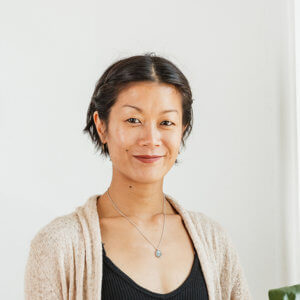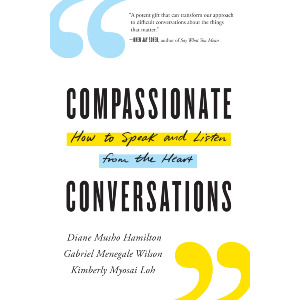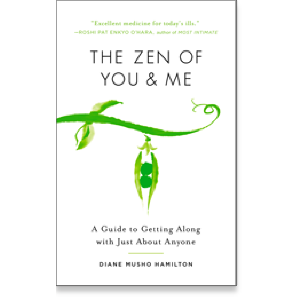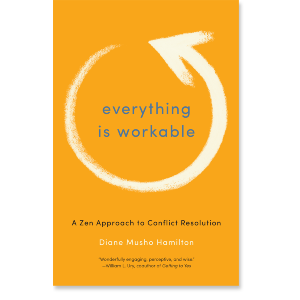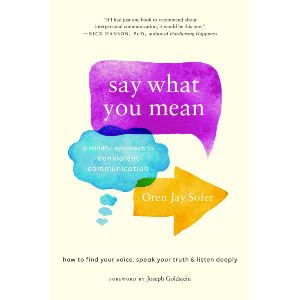Photo by eberhard grossgasteiger
This article is the first in a series of three, sharing perspectives from the book Compassionate Conversation: How to Speak and Listen from the Heart, co-authored by Diane Musho Hamilton, Gabriel Menegale Wilson, and Kimberly Myosai Loh.
Read the second article in the series, “Conversation Skills to Catalyze Growth.”
Read the third article in the series, “Leading From a Place of Wholeness”
We take the view that successful conversations do not seek to persuade one another of our positions. They aren’t about reducing or ignoring our conflicts, nor even necessarily about getting on the “same page.”
Successful conversations have an incredible capacity to deepen relationships. They allow us to bring forward and reveal our differences, rather than simply cope with them. When we learn to connect through our differences, our conversations may still traverse challenging, awkward, embarrassing, or tense terrain. Nevertheless, by learning to bring forward our truths with honesty and compassion, we fortify our relationships with one another, helping us become more flexible, forgiving, and inclusive.
What does this mean, exactly?
Here’s a passage from our forthcoming book, Compassionate Conversations, that speaks to this:
We rely on one another’s different perspectives in order to see beyond our limited viewpoints, so that we can act, in any given moment, in a way that honors all of us. But this means we have to practice. We have to rouse our good faith, listen intently to one another, ask real questions, and stay present to new perspectives. We must learn to surrender our fixed viewpoints and allow our egos to quake and shutter when we don’t agree or when our perspective is challenged. Through encountering the discomfort of the unknown, we have learned to expand and change. We have so much in common to work with, but we are so distinct, individually and culturally, that we need to openly acknowledge our respective differences so as not to be imprisoned by them. (1)
Learning to have successful conversations takes practice. This takes place in relationship, through the conversations we have. We cannot do it alone.
From my work with mediators, peacebuilders, and conflict resolution practitioners, it is clear to me that all of us have a tremendous capacity to cultivate skills that support successful conversations. These skills include listening deeply and actively, speaking clearly, and giving support and challenge. I’ll dive deeper into these in the next article in this series.
Going beneath these skills, however, we can seek to inhabit a curious mindset that understands that there is a wider, deeper reality beyond any one of our personal points of view. As Robert Kegan teaches, conflict may be arising because we need to recover our truer complexity; our conflict could be a consequence of one or both people making their partial position more true, distinct, and whole than it really is. When in actuality, if one’s view excludes the other’s, and their own valid needs, desires, and questions, then it is incomplete. (2)
When we understand and embody this with humility and an openness to learn, we can genuinely enter into the domain of successful conversations. These conversations will grow us—through becoming open to changing what we think, how we feel, and how we see the world. In this way, our conflicts can be conceived of as teachers, as invitations for us to deepen into relationship, ultimately including more of ourselves and more of the other, in service of creating a more inclusive whole.
(1) Hamilton, Wilson, & Loh, Compassionate Conversations: How to Speak and Listen from the Heart, (Boulder: Shambhala Publications, 2020), 16.
(2) Robert Kegan, In Over Our Heads: The Mental Demands of Modern Life (Cambridge: Harvard University Press, 1994), 319.
Share
Related Books
$16.95 - Paperback
$12.95 - Paperback
$19.95 - Paperback
$16.95 - Paperback
